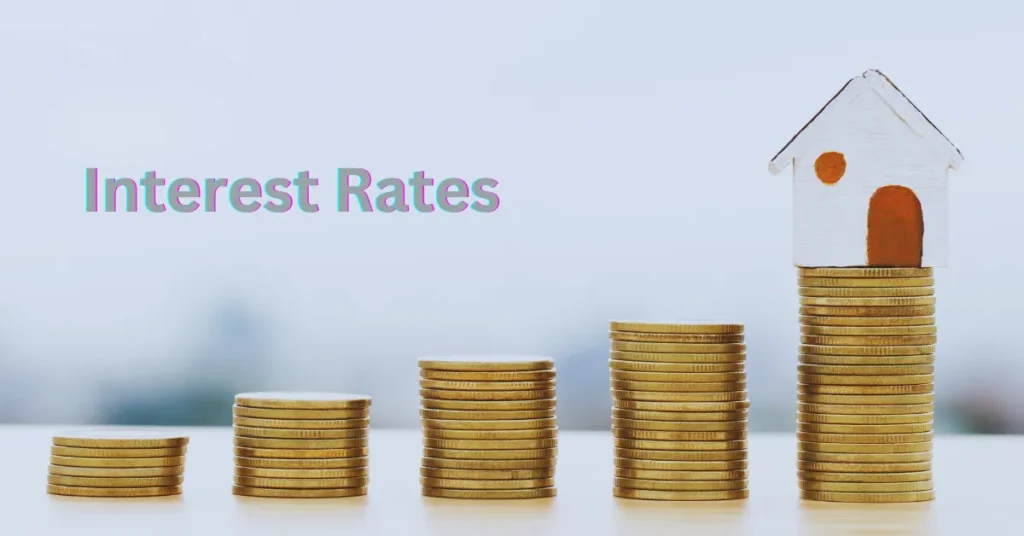
Typically higher interest rates, longer loan terms, late payments, excess borrowing and other economic factors contribute to the increase of your total loan balance.
But it is not necessary that your total loan balance increases due to these reasons. It depends on what type of loan you choose.
If you have taken out a loan that has some effective costs, including higher interest rates and longer loan terms, it is normal for your total loan balance to increase as a result.
But when you go with lower interest rates, shorter loan terms, and flexible repayment options that you are able to accommodate, your total loan balance may reduce rather than increase.
Although loans are ideal for individuals and businesses to empower their goals and dreams, it is important to understand the dynamics of the total loan balance for responsible financial management.
Because in loans you often have to pay in the form of interest for profit. Whether you have a personal loan, auto loan, student loan, credit card debt or a mortgage there can be various factors increasing your total loan balance.
In this article we will understand the various aspects of total loan balance in detail and find out what increases your total loan balance? And why is this? You proceed further for more information.
What is the Total Loan Balance?
Total loan balance refers to the amount of money you owe on your loan. The total loan balance is the outstanding amount that remains after repayment when individuals or organizations take a loan from someone. That is to say, if you have taken a loan and there is still an outstanding amount after repayment, then that amount is called your total loan balance.
How does Total Loan Balance work? Understand
Before we consider the factors that contribute to increasing and decreasing loan balance, it is important to clearly understand how total loan balance works? The total loan balance primarily represents the remaining amount on your loan after making the monthly payments.

Which includes the original amount you borrowed and the interest and fees accrued. Usually the loan balance is deposited into your monetary bank account and is charged only on your remaining loan amount. Which ensures how much interest you pay every month.
Primarily the loan balance acts as a cost. That may depend on the type of loan you have. Loan balance is of utmost importance for any borrower. Because it is part of the petition to pay off your debt. Which is calculated by subtracting your principal payment from the total amount borrowed.
What Increases Your Total Loan Balance?
Typically the increase in your total loan balance is the result of variable interest rates, missed payments, loan terms and payment frequencies. This happens when you are not making regular payments to cover the interest accrued. Because it is added to the monthly payment on your remaining loan, increasing your total loan balance.
Factors Contributing to Total Loan Balance Increase
A general rule of loan is that as you make repayments, the total amount payable reduces over time. But sometimes it happens that it progresses towards growth even in spite of timely repayment. Mainly interest affects the total loan balance the most. But this may not be the only factor that does so. Here are some other factors that contribute to increasing your total loan amount payable:
Effect of Interest Rates
The impact of interest rates is one of the most major factors in increasing your total loan balance. Interest rates usually represent the cost of borrowing an amount expressed as a percentage. The interest rates when you take out a loan determine how much extra you will have to pay as you repay the loan.

If you do not pay the outstanding interest for the tenure of the loan, that interest amount may be added to your principal amount as the remaining amount due. Which results in larger monthly payments and you may find it challenging to repay your principal amount quickly.
That is to say, the longer you carry a balance on the loan, the more interest payments accrue, increasing your total loan balance. So it is important to minimize its impact by shopping around for the best interest rates and, if possible, negotiating with lenders for more favorable terms.
Credit Period
Loan tenure plays an important role in increasing and decreasing your total balance. Loan tenure refers to the period during which you agree to repay your loan. Short-term loans usually come with higher monthly payments but save you money in the long run by reducing the overall interest expense.
While long-term loans offer lower monthly payments they may result in a higher total cost due to extended interest accumulation. Overall, longer loan terms affect your total loan balance more than shorter loan terms.
Because shorter loan terms (short-term loans) reduce the total interest with higher monthly payments. While longer loan terms (long term loans) result in lower monthly payments resulting in higher overall interest expense. So to reduce your total loan balance, you should understand the difference between short and long term loans and choose the option that matches well with your objectives and capabilities.
Missed or Late Payment
Missed or late payments contribute significantly to increasing your total loan balance. Late fees and penalties may apply if you miss making timely payments to your loan provider. Which may increase over time. Additionally, late payments may result in increased interest costs, increasing the total outstanding amount.
However, lenders do not usually ask you for immediate repayment when you take a loan. Because they expect to get the amount on time. But still if for some reason you delay the payment then you may see an increase in your total loan balance.
Conversely, missing or late payments can also have a negative impact on your credit score, making it difficult for you to get loans in the future. Therefore it is important to maintain a careful payment schedule and make early payments whenever possible. Because this can help you in reducing your total loan balance and get yourself relief.
Additional Borrowing
When you already have a loan and you want to add an additional loan to it, your total loan balance can increase significantly. Because adding any additional borrowing to the existing loan increases your total outstanding amount, it can increase your overall financial burden.
In some situations, lenders offer their borrowers the option to increase the loan amount or apply for a new loan while paying off the existing loan. Although it may provide additional funds, it also increases the total loan balance. If you find yourself in a situation where you need additional borrowing, assess your financial situation and determine if it is the right decision.
Paying Less than the Amount due
Depending on the increase in your total loan balance, paying less than the amount due can also increase your loan balance. Because it is considered riskier for borrowers to pay less than the amount due. If you are paying too little or less than that minimum balance, unpaid interest can be added to your principal balance every month, resulting in an increase in your total loan amount payable.
However, it is tempting to stick to paying less than what is due. But any amount less than the required payment amount can increase your loan balance. So it is important to ensure that you make payments that meet the minimum requirements. Additional penalty fees may also be charged if you pay less than the minimum amount due.
Loan Refinancing
If we talk about loan refinancing, then this can also be a factor in increasing your total loan balance. Because refinancing any loan involves taking out a new loan along with paying off the existing loan. When you refinance your loan, your repayment tenure also increases, which means you will be paying interest for a longer period of time.
Which may result in your total loan balance being higher. However in some cases, you may be able to negotiate with your lender to reduce your monthly payments and extend the repayment period. But before deciding to refinance the loan it is important to understand that this longer payment period can increase your total loan balance.
A Long Repayment Plan
As we mentioned earlier, longer repayment plans often accrue more interest with smaller monthly payments which increases your total loan balance significantly. However, longer loan repayment tenure can provide you peace of mind while paying smaller installments. But have you ever wondered what impact it can have on the total loan balance?
Because it is one of the important factors that contribute significantly to the growth of your total loan balance. Usually when you opt for financing, you can find plans that give you up to 20 years to repay the amount. But it is important to understand that the longer the repayment tenure, the more interest your lender will charge on the loan.
Calculation Errors
Sometimes, calculation errors made by the lender can also increase your total loan balance. Because while making manual adjustments in the balance, your lender may make some wrong calculations resulting in bitter consequences like increasing loan balance. In the event that there are any loan errors, you should immediately contact your lender and have the error rectified.
Factors That Reduce Your Total Loan Balance
As you increase your loan balance, it can see significant growth over time. If you are not able to stop it in time, you can remain stuck in this debt for a long time. But did you know, there are many manageable ways to reduce debt balance. Which can help you in reducing the potential increase of your total loan balance.

Pay on Time
Making payments on time is an important way to reduce your total loan balance. By paying your loan on time, you can get relief from additional costs like various late fees and increased interest rates. Due to which your total loan balance will be relatively lower, and your credit score will also improve.
Pay more than the Minimum Payment
Paying more than the minimum is one of the best ways to reduce your loan balance. Because paying more than the minimum due can help you pay off the loan faster and save interest over time. So if possible, pay more than the minimum amount due each month, this will not only help you reduce the loan balance but will also help you repay your loan faster.
Financial Planning and Budgeting
Sometimes, creating a comprehensive budget and financial plan can also be of significant help in managing your debt balance. Because by following your budget and managing finances wisely, you can increase your financial stability and avoid the risk of falling into debt. Therefore, it is also important to maintain a financial plan and budget to keep track of your expenses and avoid accumulating more debt.
Make big Payments with Short Loan Terms
Shorter loan terms often contribute significantly to reducing loan balances by earning less interest with larger monthly payments. Because the overall interest payment in these types of loans is lower compared to long term loans. This will reduce your chances of facing capital interest penalties or increasing loan balances and help you repay the loan faster.
Choose Automatic Payment Option
Opting for automatic payments is also a great way to keep your debt under control. Setting up automatic payments can ensure each of your loan payments is made on time. Which reduces your chances of incurring late payment fees and interest charges. Additionally, some lenders may also offer a discount from setting up automatic payments. Due to which your payable amount may be relatively less.
Pay Extra
One of the most effective strategies for reducing your loan balance fast involves making extra payments. Making extra payments can help you reduce your outstanding balance faster and reduce the interest you pay tax effectively. But for this it is important to understand that the additional monthly payment will have to be completed before the scheduled time.
Avoid Late Payments
Avoiding late payments is also an important way to reduce your growing loan balance. If you miss loan payments or make late payments, late fees and penalties may be charged to your loan. So start paying your loan during the grace period itself, this will reduce your interest cost and keep the loan balance under control. This way, you can reduce your total loan balance.
Side Effects of Increase in Loan Balance
When consumers secure a loan, the lender adds an interest rate on the loan. Which can cause the interest rates associated with your loan to increase the loan balance over time. Do you know what could be the adverse effects of increasing loan balance? Let us take a closer look at the adverse effects of increasing loan balances.
Higher Interest Payments: Paying higher interest due to increasing loan balance is one of the initial challenges. The higher your loan amount, the more interest you will have to pay on the total balance during the loan tenure. This is because interest is the cost of borrowing money that is charged by the lender in exchange for the amount lent.
Less Savings: When your loan balance is high and you have a large amount of debt, you may need to make larger monthly payments, leaving you with less money to save every month. This can make it difficult to save for emergency needs and financial goals.
Fees and Penalties: If you miss payments on time, you may be charged additional fees and penalties. Because the loan balance remains in effect until you pay off your outstanding amount in full. A variety of charges may be levied if you delay any payment during this stipulated loan period.
Financial Difficulty: Increasing loan balances can also have a significant impact on your financial situation. If your loan debt grows much more than the principal amount, it may be challenging to make your monthly payments. Because in such a situation you will pay interest on the higher principal balance. Which can result in larger monthly payments and higher interest accrual over the life of the loan.
Insufficient Payments: In most loan agreements, borrowers are required to make regular payments. But if a borrower is not able to make a payment covering the entire amount of interest accrued, the unpaid interest may be added to the total principal balance of the loan. Due to which it may be challenging for the borrower to repay with sufficient amount.
Low Credit Score: The increase of loan balance can also have a negative impact on your credit score. Due to which it may be difficult for individuals with low credit scores to get loans. If you have a low credit score, you may have to pay higher interest rates on any future loans or credit cards. Therefore, to improve it, it is necessary to make regular payments and manage the loan properly.
Understanding Loan Balance
To manage your finances effectively it is essential to understand what increases your total loan balance? Because by identifying the factors that contribute to its increased imbalance and understanding the factors that control it, you can take proactive steps. And can manage your debt more effectively.
There are different actions you can take to reduce your loan balance whether you have consumer loans or federal student loans. However, looking at the balance on loan growth can be misleading. But understanding the most common reasons your loan balance increases can help you stop it and reduce your financial stress.
Frequently Asked Questions
What is loan balance?
Typically the loan balance is the amount you owe your lender in the form of interest or fees along with the principal amount. As you repay the loan, this balance gradually decreases until you pay off the loan in full. If you delay or miss payments, this balance may increase rather than decrease.
Why do your loan balances increase?
Many different factors may be involved in the increase in your loan balance. The main reason among which is accumulation of excess debt. If the loan balance is increasing, this may cause any borrowed amount to increase, which may include interest and other charges.
Does interest accrual increase loan balance?
Yes, of course interest accrual can increase the loan balance. When a consumer takes a loan from someone, interest is charged on the borrowed amount. If the loan balance is large and the interest is increasing at the prescribed rate, the loan balance can increase significantly.
How to reduce your total loan balance?
The best way to reduce your total loan balance is to make payments on time and avoid borrowing extra money. Because by making timely payments you will be able to adjust the interest rates well, thereby reducing the remaining outstanding amount of your loan. If possible, pay more than the minimum required payment each month. This can effectively reduce the interest you pay.
Bottom Line:
Understanding what increases your total loan balance? is important to taking control of your financial future and maintaining stability. By understanding the factors that increase loan balances, you can take proactive steps to reduce your loan balance and save more interest. But it is essential that in complex financial situations, consulting a financial advisor can provide invaluable guidance.
Read More:
